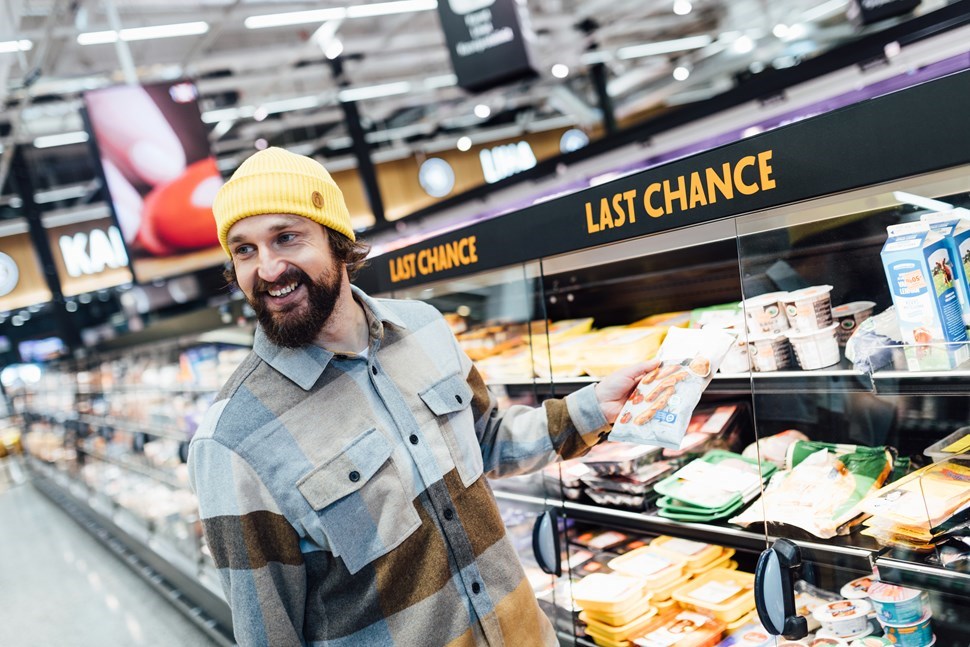
Noomi Järgerhorn (M.Soc.Sc.) has been appointed as Kesko’s Vice President of Sustainability. She will join the company on 1 May 2025, and assume her new position on 1 June 2025 at the latest.


More and more customers are interested in discount food shelves and red price labels in food stores. According to a K Group survey* conducted in August, 69% of the Finns say they buy discounted products that are close to their sell-by date. Interest in red-flagged products is growing, showing an increase of 5 percentage points from the corresponding survey conducted in June. The Finns are also happy to take advantage of other offers in grocery shopping. Of those who responded to the survey, 87% stated that they follow offers and buy campaign products.
K Group’s sales data indicates that the unit sales of red label products have increased by almost 12% by the end of August compared to the corresponding period last year. In terms of units, most of the red-flagged products sold are bread, convenience food, meat products, yoghurts, puddings and dairy products. The sale of red label products has been growing in all of the above-mentioned product groups.
For Juha Kupiainen, retailer at K-Citymarket Joensuu Pilkko, food waste reduction measures are an everyday routine. “Of course, the most important thing concerning food waste is to prevent it. In orders, we use demand planning and do continuous food waste and selection management with the help of various tools. We run campaigns for products that are close to their sell-by date, and products are of course also red-flagged. We donate all the remaining edible food to food aid,” says Kupiainen.
Products making use of food that would otherwise be lost have also found their place on store shelves. The selection of K-Citymarket Joensuu Pilkko includes Hyvis tomato and cheese soup, which is made with tomatoes discarded from the K Group’s central warehouse and Juustoportti’s surplus cheese. The soup was launched in K-food stores in April, and it has already reduced approximately 7,000 kg of tomato waste in the central warehouse.
Halving food waste by 2030 is one of the key circular economy goals of the K Group’s grocery trade division. The new goal was set in the spring of 2022, and the K Group works consistently throughout the value chain to achieve it.
“We promote circular economy in accordance with our new sustainability strategy and we are also guided by the revised Waste Act to reduce food waste. The amount of food waste has decreased in the K Group this year by 4% compared to the same period last year. We also want to encourage suppliers to minimise food waste and to help our customers make responsible decisions,” says Timo Jäske, the Vice President of Sustainability for K Group’s grocery trade division.
The customers of K-food stores also consider reducing food waste an increasingly important part of the K Group’s sustainability work. In a survey conducted for the K Group’s customers in August**, 58% of the respondents felt that the K Group should focus on reducing food waste in its sustainability scheme.
*A K-Barometri survey conducted at the K Group's customer community K-Kylä on 15–21 August 2022 for Finns aged 25–74, n=1010. The data was weighted to match the population distribution in terms of age and gender.
*An omnibus survey conducted at K Group’s customer community K-Kylä in August 2022, n=1054.
 YES
YES
 NO
NO